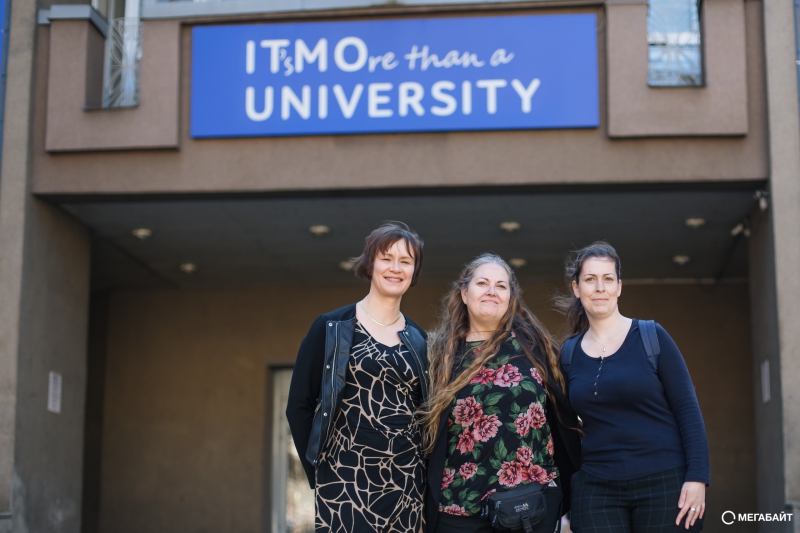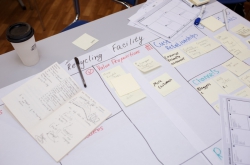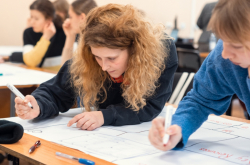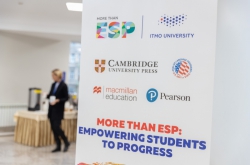How did your cooperation with ITMO University begin?
Satu Rusko: Our cooperation began just about a year ago, and has been actively developing ever since. A lecturer from our university had been keeping in touch with Alexandra Shparberg (a tutor at ITMO’s Foreign Language Training Center), and we started to plan our visit. Last November, some of ITMO University staff came down to the University of Oulu for a visit. And then it was our turn to come to St. Petersburg.
Why are you interested in collaborating and sharing your experience and expertise with a Russian university?
Satu Rusko: There are several aspects that link us with ITMO University. First and foremost, it’s our mutual interest in infocommunication technologies and the field of tech at large. Another aspect is internationalization, which is crucial for our university. And of course, there’s this general reason that Russia is a very important business partner for Finland. The staff and students of our university are of a very high opinion of your country and would be also like to cooperate.
Magdalini Liontou: Apart from this line of cooperation, we have already started to explore the opportunities for conducting joint research with one of our Russian colleagues and have already exchanged our emails. Right now, we’re evaluating different options and hope to proceed with publishing joint papers in the near future.
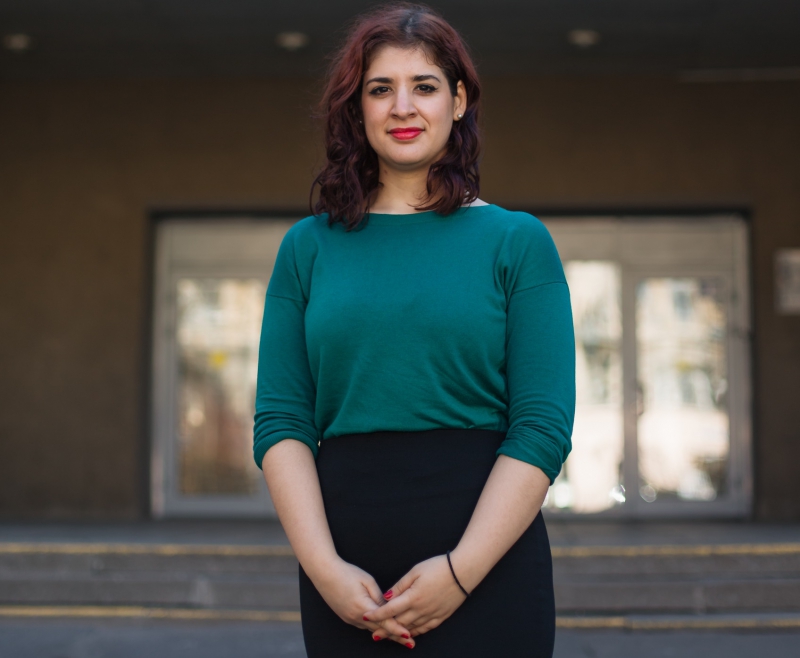
What did you do during your visit to ITMO?
Satu Rusko: First, we discussed ideas and options for future cooperation, as has been mentioned by Magdalini. Following this, we are now planning joint educational initiatives, in the online format at the very least. For example, we at Oulu offer the course “English for information processes in science”, which aims to develop both reading and speaking skills. We’re going to cooperate on this kind of aspects, and also those regarding the field of business.
Karen Niskanen: We’ve also been speaking about what we do as part of our courses, answering questions and sharing ideas.
The program of your visit also included a roundtable and participating in the NATE conference. What did the latter involve?
Magdalini Liontou: As part of the conference, we gave a small presentation on our expertise and projects we worked on. We shared about our experience and discussed work and life skills we aim our courses to nurture. We would like to continue sharing our experience and learning-related data we gather. And I hope that in the future, we could use that as a basis for creating a joint program because I think this is something both parties could be interested in.
Your main occupation is teaching English for research and academic purposes. What, in your opinion, are the key skills for all students who want to effectively use English in their research work?

Satu Rusko: I think the first thing such students need to look into are the so-called soft skills, above all communication and presentation skills. Apart from that, what’s important is to know how to search for and filter data and deal with information. We make sure that all of our courses include these important aspects, because no matter the field our students will go on to pursue their careers in, be it academia or industry, they’ll have to attend conferences and work with huge amounts of data, as well as demonstrate good presentation skills.
Does teaching English at a Finnish university have its own specifics?
Magdalini Liontou: Above everything else, we’re not that exam-oriented. Our students don’t have a lot of exams, or these are just different in format. For example, some courses don’t imply a typical written exam, but students still have to give a presentation as a form of evaluation. Some courses don’t have any grades at all, just pass or fail. In any case, we try not to fixate on grades too much. We tell students that in their professional lives, they’ll have to perform different kinds of tasks every day, and that’s why the most important thing is to learn how to do these tasks and not to obsess over ideas such as “I got the best grade!” or “I can do better than that.”
Do you use any IT tools in your teaching, and if yes, how?
Magdalini Liontou: At the University of Oulu, we have a practice of hosting and participating in monthly seminars and workshops on this topic. Various tools by Google are of course very widely used. We also use the open-source learning and course management platform Moodle, and host workshops in OneNote. The University of Oulu has its own newspaper, thanks to which we get updates on new educational apps and tool on a weekly basis. It is very popular both among us teachers and the students.
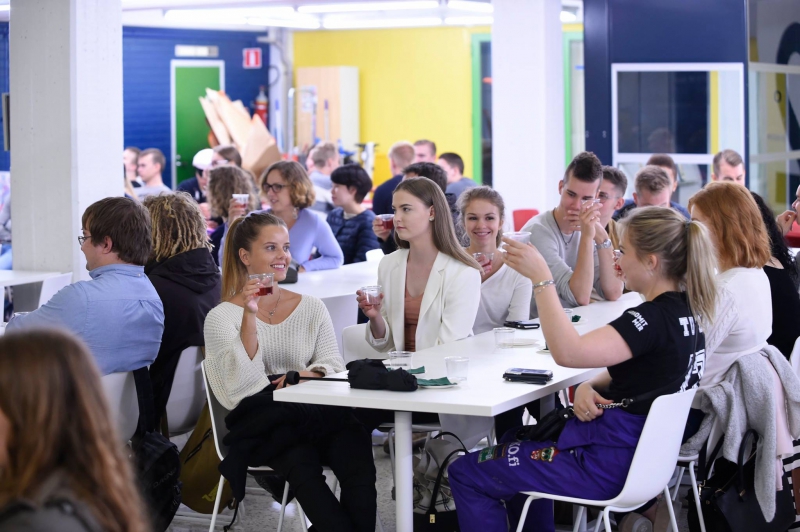
Satu Rusko: I often use kahoot.com; this is a free platform for game-based learning that is appropriate for all subjects and ages. Apps really do come in handy, especially if you know which functions they carry: this saves a lot of time. But we shouldn’t disregard the important role face-to-face communication plays in education; nothing is quite capable of replacing it. That’s why apps are just a cherry on the cake, the main ingredient of which remains to be real-world communication.
You may have heard of foreign language learning apps, which nowadays are very popular. What’s your verdict on their effectiveness?
Magdalini Liontou: I've used some of them, for example for learning the Finnish language. But I don’t think they work. Though of course, someone else may have achieved better results than I was able to.
Satu Rusko: I think that this tool works only if you’re very motivated, starting from the Beginner level or just want to refresh your memory up a bit. But as teachers, we do treat these things with skepticism.
A common situation in foreign language learning, notably in Russia, is that people learn English for five-seven years at school, as a result of which they may know their way around grammar and be able to read and understand the spoken language, but experience difficulties speaking themselves. It may even be nerve-racking for them to ask for directions or engage in a similarly simple conversation. Do Finnish students face the same problem? And if yes, how do you solve it?
Satu Rusko: This problem does exist in Finland, but I suspect that in our case, this has to do with the Finnish mindset. We’re convinced that everything has to be done perfectly and thus are afraid of making a mistake. I think that we have to encourage our students by teaching them to be calmer and more relaxed, and also to convince them that mistakes are in no way something to worry about.
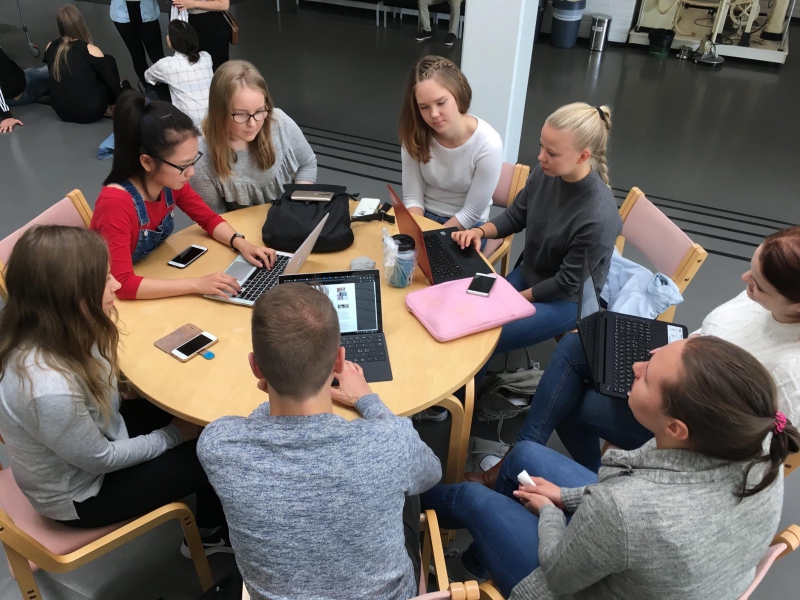
Magdalini Liontou: I think that we also have to be more open about our own experiences since English isn’t our native language either. I think that this can help our students a great deal. Apart from that, the majority of our courses are subject-specific, and the students enrolled are interested in what they’re learning and in the main know what they want, meaning that they understand that a language is no more than a tool, and that to learn more about the subject they’re so interested in, they have to learn that language first. Language is just a means to help them achieve their goal.
In this sense, it’s highly likely that future scientists won’t need to be motivated to learn English.
Magdalini Liontou: Yes, because science is their first and best motivation. This is especially noticeable in engineers and researchers, who know that the newest data on the subject of their study will always first be published in English and only then in their own language. Many of them know the English names of scientific concepts in their specialization even before they start their university studies, and this is because from the very get-go, their aim is the global market.
Karen Niskanen: International community is very important, it’s a very significant aspect to consider in planning your professional growth. In their future careers, students will have to work alongside colleagues from other countries and cultures, partake in international events, and read professional literature which, as has already been mentioned, is primarily published in English.
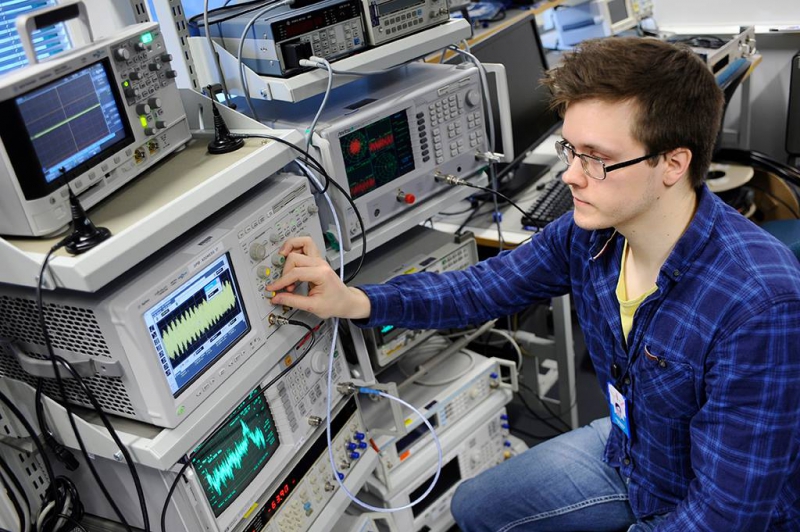
Do you have any plans to expand your cooperation with ITMO University in the future?
Magdalini Liontou: We have already started to discuss further cooperation, and in the nearest future we plan to build on this discussion. First, we were visited by our Russian colleagues in Finland, then we paid a visit to our colleagues in Russia, so now is the perfect time to moot new formats of our collaboration.
Alexandra Shparberg: We did a great deal of thinking about this question, especially in the context of future development of our course on communication skills. I hope that in the future, we will work together to facilitate joint learning of Russian and Finnish students online. And in that way, to help them find their personal goals for why they learn English in the first place. We also want to make a joint course on business communication. I think that this fall will be a great time to start.
Satu Rusko: In addition to everything mentioned by Alexandra, I think it is important for us to cooperate in such topical fields as engineering, computer science and data processing. Russia means a lot to us, and that’s why we’re motivated to constantly keep in touch with Russian students.
FIRST+ is a Russian-Finnish student and teacher exchange program that encourages network partnerships between higher education institutions of Russia and Finland. In line with this commitment, the program supports student and teacher mobility between the universities of the two countries, as well as the conduct of joint intensive workshops in Russia. A FIRST+ network always includes at least one institution in Finland and one in Russia.
